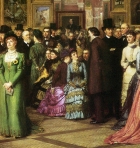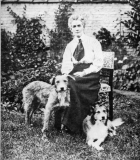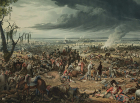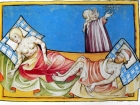Health & Medicine through Time
Attitudes to sickness and health have played a key role across different civilisations and throughout time. The emphasis placed by the ancient societies of Egypt and Greece on the human body are discussed under this theme and the impact those beliefs had on society as it developed. Changes in welfare and hygiene are explored as are attitudes to cleanliness and the eradication of disease. The radical changes to the understanding, experimentation and application of medicine from the nineteenth century to today are an important part of this theme and are explored here.
Sort by:
Date (Newest first) | Title A-Z
Show:
All |
Articles |
Podcasts |
Multipage Articles
-

Anorexia Nervosa in the nineteenth century
ArticleClick to view -

Black Death to global pandemic: London then and now
ArticleClick to view -

Child Health & School meals: Nottingham 1906-1945
ArticleClick to view -

Cholera and the Fight for Public Health Reform in Mid-Victorian England
ArticleClick to view -

Coroners, communities, and the Crown: mapping death and justice in late medieval England
ArticleClick to view -

Disease and healthcare on the Isle of Man
ArticleClick to view -

English first-aid organisations and the Provisional IRA mainland bombing campaign of 1974
ArticleClick to view -

Eyam: the plague village 1665-66
ArticleClick to view -

Film: London’s Dreaded Visitation – Epidemic disease in Restoration London
ArticleClick to view -

Florence Nightingale and epidemics
ArticleClick to view -

Four faces of nursing and the First World War
ArticleClick to view -

Glowing in the Dark
ArticleClick to view -

Havelock Hall: the East India Company college gymnasium at Addiscombe
ArticleClick to view -

Losing sight of the glory: five centuries of combat surgery
ArticleClick to view -

Medieval Medicine Podcast
Multipage ArticleClick to view -

Old age care in the time of crisis: London in the sixteenth century
ArticleClick to view -

Out and About in South London
ArticleClick to view -

Podcast: The Historical Medicalization of Homosexuality & Transvestism
ArticleClick to view -

Real Lives: Anna Wessels Williams (1863–1954)
ArticleClick to view -

Real Lives: Beatrice Alexander
ArticleClick to view

